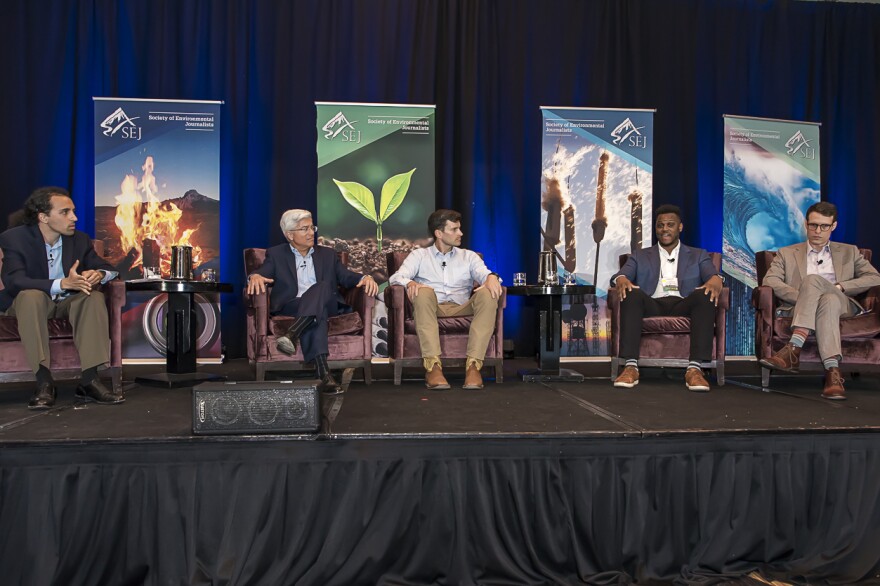A national discussion is underway over making sure that everyone who wants to be part of the predicted transition to solar and other cleaner, renewable forms of energy can join up. What happens in the Milwaukee area is part of that discussion.
A recent Department of Energy study found that solar adopters tend to identify as non-Hispanic white and live in higher-value homes. Neither of which describes Francesca Dawson, who last year had 12 solar panels installed on the south-facing roof of her garage.
Dawson says ever since, her electricity bill has been shrinking. "It's kind of like a game. You know, how low can I go? The month of March, I saved $64. I'm trying to see if I can get it down to zero, or WE Energies pays me," she tells WUWM.
Even if she eventually sells a bit of power to the local electric company, Dawson will be paying off the solar panels for five to 10 years. But she says getting in on a group buy of the panels lowered the cost and so did financial incentives from the city of Milwaukee, the state Focus on Energy program and her credit union.
Dawson is Black and lives in the modest Lindsey Heights neighborhood, a few miles northwest of downtown. She says her longtime curiosity about solar energy, and the salary she earns as an IT worker also made her a good candidate to go solar.
She says her neighbors ask her about the panels, but hesitate to add their own.
Dawson says what's needed for greater adoption of solar is "if they can have it come down in cost, if they can do more the group buys. I think that's what scares people — the cost of the panels, 'I'd have another payment.'"

Incentives are something Jamal Lewis looks at on the national front, as he works toward equitable electrification. Lewis is with the nonprofit group Rewiring America. He says there's a tremendous opportunity to make sure lower-income Black and brown communities get on board the solar revolution. But Lewis says there also needs to be incentives for things like updating electrical panels in older homes.
"A lot of the times, the homes we're living in weren't built to be able to withstand the increased electric demands. So, we'll need to raise the voltage up in our homes to be able to deal with solar panels, to use electric induction stoves and eventually to power and charge our electric vehicles," he says.
Lewis says he's big on what he calls meeting people where they are — meaning for example, recognizing owners of older homes might need to suddenly replace a natural gas furnace.
"I'm 28 years old, and my parents' furnace is older than I am. If they were to transition and buy a new furnace, we're basically locking in 30-plus years of fossil fuel investment. We can't let that happen," he says.
Lewis recently spoke at a national conference of the Society of Environmental Journalists. So did Pedro Pizarro of Edison International, the parent company of the utility Southern California Edison. Pizarro says he's also big on expanding access to cleaner energy and more use of efficiency programs as ways to reduce emissions that contribute to global warming.
But Pizarro says there will be a cost: "Let's make no mistake. It's going to be expensive to mitigate climate change by reducing carbon in the economy."
But eventually, Pizarro says, he thinks the typical consumer in the U.S. will spend less money on energy. "Electric might go up. But the total bill of electric, plus gas, plus gasoline will go down by about a third for the average consumer by 2045 because of the greater efficiency of electric appliances," he says.
Expect continuing battles on whether taxpayers or utility ratepayers or company stockholders should foot most of the bill for the technology and investment.
But also don't underestimate the motivation of curious, socially conscious and creative consumers like Milwaukee's Francesca Dawson, who has adopted a basic approach to energy use. "How can I live comfortably, without spending a lot?" she asks.






